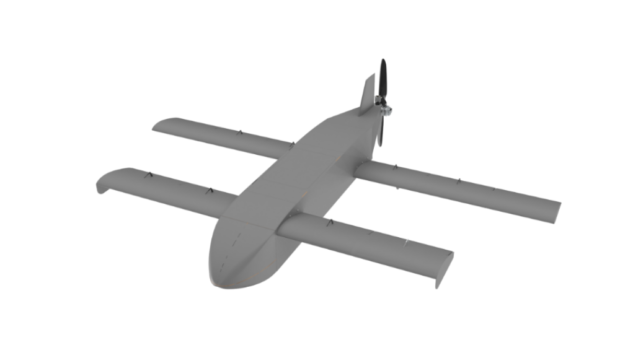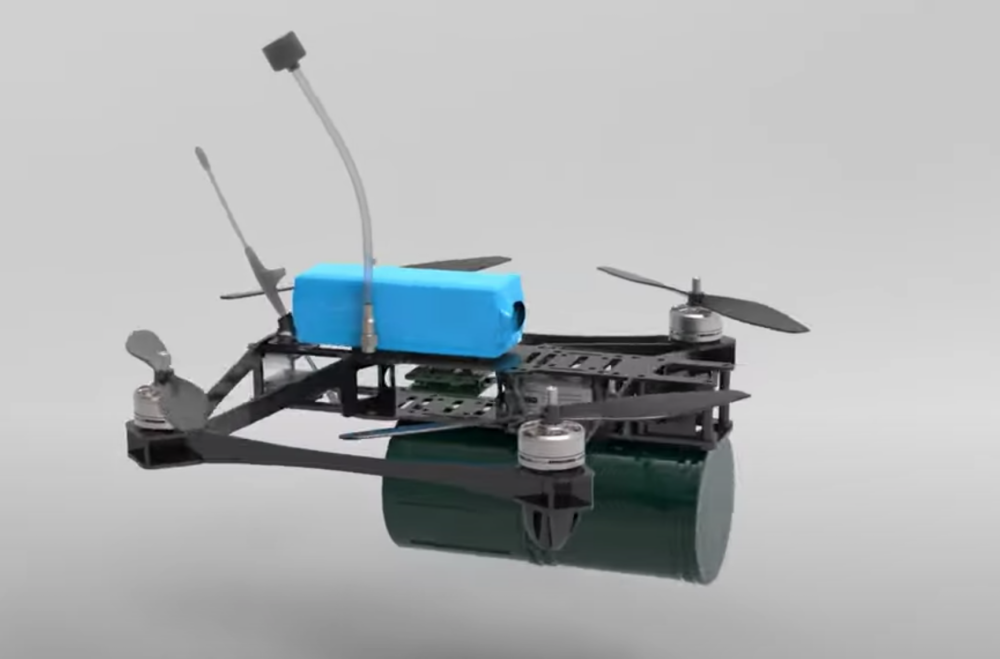Ukraine-based start-up One Way Aerospace, which makes low-cost, domestically produced kamikaze drones, said it will demonstrate a long-range system to the country’s Ministry of Defense and an undisclosed European NATO partner.
Both the company’s AQ-400 and the AQV-150 Scalpel Heavy drones are expected to be tested and showcased in late May at an unknown location. Founded eight-months ago by two veterans of the British and Australian militaries and a Ukrainian engineer, One Way Aerospace has made rapid leaps in widening the set of platforms it markets to customers.
Disposable, one-way or “kamikaze” drones offer the advantage of low cost and ease of replacement. If one gets shot down, it is not that relevant, since they typically cost far less than cruise missiles and can be purchased in larger amounts. This is known as the quantity-over-complexity strategy, where successful outcomes on the battlefield can be generated by a larger quantity of lower-tech weapons rather than relying on fewer, more costly and more complex munitions.
“Our mission was created after we saw a direct market-need to procure systems that are simple, affordable and disposable from a commercial basis,” James Earl, co-founder of One Way Aerospace, told Defense News. “We thought to ourselves, the only way this concept was going to work was if we saw our products not necessarily as precious assets, but more so in the same way that cruise missiles are seen.”
Production is set up through a network of small sites and engineering companies manufacturing similar platforms on the ground. Although One Way Aerospace sources some components from outside Ukraine – primarily from the West, including Germany and the U.K. – the company seeks to localize manufacturing as much as possible.
This will soon involve the establishment of a larger facility of at least 1,000 square meters in Ukraine to ramp up the production of their latest AQ-400 Scythe platform. This long-range kamikaze drone was designed to be rapidly assembled and mass-produced at low prices. It can be launched from a short runway or catapult and can carry payloads up to 70 pounds (32 kilograms).
“The AQ-400 will begin development for turbine power and low-level terrain following type flight control, which will take us one step closer to the affordable cruise missile goal: 1000 kilometers, at a speed of 350 km/h for less than $100,000,”
Earl said in an interview, adding that when combined, the AQ-400 and AQV-150 could form a disposable multi-strike system. The goal is to eventually be able to hit 10 targets at 150 kilometers from the launch site, he said.
Russian targets
This month, the company released video footage showing its AQV-Scalpel, using a small first-person view system, in Ukraine targeting Russian military trenches, personnel carriers and even destroying a TOS-1A thermobaric rocket launcher vehicle.
As these types of systems fly at lower speeds and have finite flight time, they are easier targets and at higher risk of being hit by kinetic strikes. Another element to consider about the quantity over complexity claim is that it is not automatically applicable to all conflict zones or types of environments. Individual states’ security requirements may differ from one to the next, a limitation the company recognizes.
“The starting point of this market for us was fulfilling a particular, important challenge Ukraine was facing, one perhaps other countries do not have on their doorstep… It is a single-use case of a type of system [and way of delivering capabilities] being incredibly useful, but one that does not necessarily transport everywhere well or the same,” Earl said.
Source: C4ISRNET


